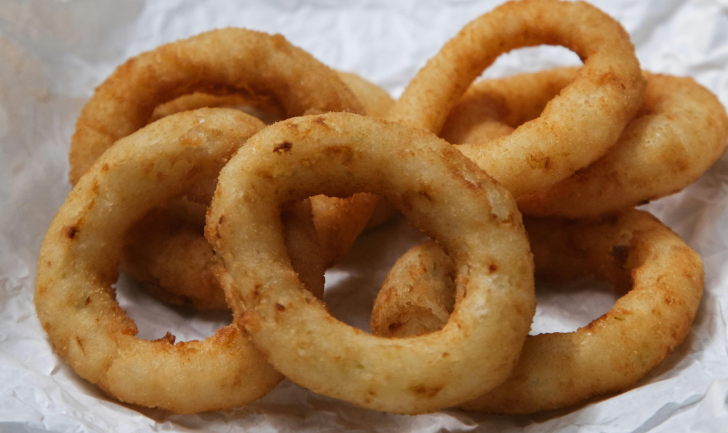Onion Ring Day
National Onion Ring Day, celebrated on June 22nd, is a delicious tribute to one of the most beloved deep-fried snacks. Onion rings—crispy on the outside, tender and sweet on the inside—are a staple in diners, burger joints, and comfort food menus across the United States. While their exact origin is debated, recipes for battered and fried onions date back to the early 20th century, and they’ve remained a popular side dish ever since. This day is perfect for indulging in your favorite version of onion rings, whether they’re beer-battered, panko-crusted, or air-fried. It’s also a great excuse to try making them at home or to explore creative variations like spicy dipping sauces or onion ring-topped burgers.
Kissing Day
National Kissing Day, celebrated in the United States on June 22nd, is a day dedicated to the simple yet powerful act of kissing. Whether it’s a romantic kiss, a friendly peck, or a loving gesture between family members, this day celebrates the emotional connection and affection that a kiss can convey. While International Kissing Day is observed globally on July 6th, National Kissing Day gives Americans a special moment to reflect on the joy and intimacy that kisses bring to relationships. It’s also a fun opportunity to express love, appreciation, and warmth to those we care about.
June 22 has been a significant date in history for various reasons across different years.
1633: The Catholic Church forced Galileo Galilei to recant his view that the Sun, not the Earth, is the center of the universe.
1774: The Quebec Act was passed by the British Parliament, expanding the boundaries of Quebec and granting freedom of religion to Catholics, which was significant for the predominantly Catholic population of Quebec.
1813: During the War of 1812, the British took control of Fort George in Canada after defeating the Americans.
1815: Napoleon Bonaparte abdicated for the second time after his defeat at the Battle of Waterloo.
1848: The June Days Uprising began in France as workers in Paris rose up in response to plans to close the National Workshops, which were a form of government employment created after the February Revolution.
1870: The United States Department of Justice was created.
1898: During the Spanish-American War, United States Marines landed in Cuba.
1911: King George V of the United Kingdom was crowned at Westminster Abbey.
1937: Joe Louis won the world heavyweight boxing title by defeating James J. Braddock in an eighth-round knockout at Chicago’s Comiskey Park.
1940: France signed an armistice with Nazi Germany during World War II, leading to the occupation of northern and western France.
1941: Operation Barbarossa: Nazi Germany invaded the Soviet Union during World War II, breaking the non-aggression pact between the two nations.
1944: The G.I. Bill was signed into law by President Franklin D. Roosevelt, providing various benefits for returning World War II veterans.
1945: The Battle of Okinawa ended with an Allied victory, marking one of the bloodiest battles of World War II in the Pacific Theater.
1969: Judy Garland, the famous American actress and singer, died at age 47.
1978: The original production of Andrew Lloyd Webber’s musical “Evita” opened in London’s West End.
1984: Virgin Atlantic Airways operated its first flight from London Gatwick Airport to Newark International Airport in New Jersey.
1986: Diego Maradona scored the infamous “Hand of God” goal and the “Goal of the Century” in Argentina’s quarter-final match against England during the FIFA World Cup.
1990: Checkpoint Charlie, the crossing point between East and West Berlin during the Cold War, was dismantled.
2001: The Great Communicator, a sculpture of former U.S. President Ronald Reagan, was unveiled in the U.S. Capitol Rotunda.
2002: An earthquake in northwestern Iran killed at least 261 people and injured 1,300 others.
2003: The largest hailstone ever recorded in the U.S. fell in Aurora, Nebraska, measuring seven inches in diameter and weighing nearly 1.7 pounds.
2009: A Washington Metro train collision occurred, killing nine people and injuring over 70. It was the deadliest crash in the history of the Washington Metro.
2010: The longest match in tennis history ended at Wimbledon, with John Isner defeating Nicolas Mahut in a match that lasted 11 hours and 5 minutes, spread over three days.
2013: Nik Wallenda became the first man to successfully walk across the Grand Canyon on a tightrope without a safety harness.


